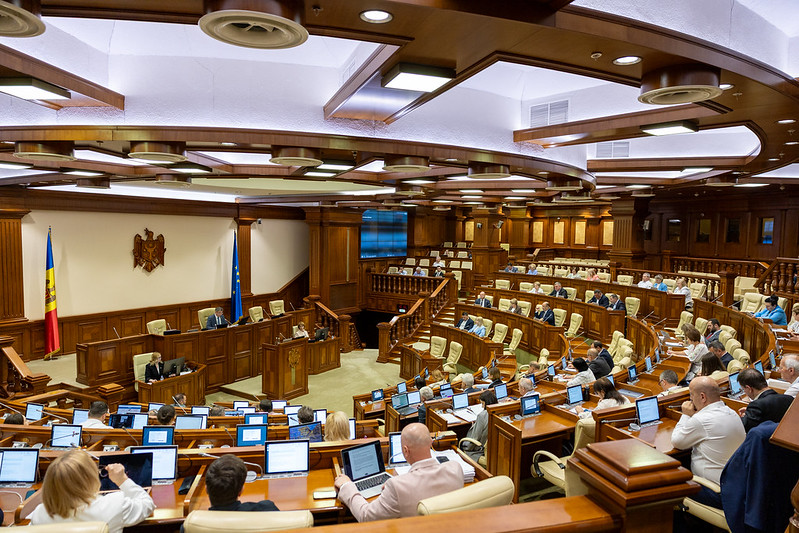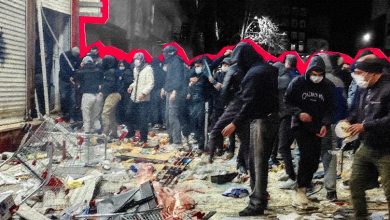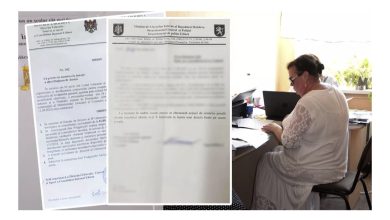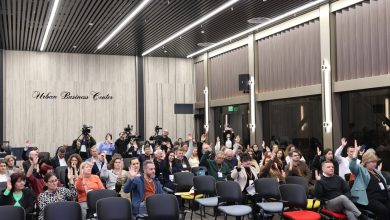The draft law amending the AMSC, voted in the first reading. Arguments from the government and criticism from the opposition
Victoria Dodon

The draft law introducing a series of amendments and additions to the audiovisual legislation, promoted by the Action and Solidarity Party (PAS), which generated discussions and criticism in the public space, was voted by the Parliament in the first reading at the meeting on June 27. The initiative was supported by 55 MPs.
During plenary debates, several opposition MPs accused the government of using the draft law as a “means to punish dissidents” or an instrument of censorship.
“The initiative is not based on concrete legislative terminology, but rather on subjective assessments by the members of the Broadcasting Council, because the document does not provide clear explanations and interpretations of terms such as risk to national security or voice of the enemy, and I think that the prerogatives of the BC are extremely broad, but not sufficiently substantiated, and this entails great risks on editorial freedom,” commented Alla Pilipețcaia from the Bloc of Communists and Socialists. She also referred to the sanctioning system. Her colleague, Inga Sibova, spoke about the attempt to transform the information space into one that is “very convenient, after which censorship will come”, referring, among other things, to the TV stations with previously suspended licenses.
Discussion also focused on provisions related to the content broadcast and the retransmitted channels, the opinion and objections of the Venice Commission, the interpretation of the concept of disinformation and the proposed revision of the definition, but also whether – and how – the amendments to the AMSC will make the fight against this phenomenon more effective.
In reply, the chair of the specialized commission, Liliana Nicolaescu-Onofrei, who presented the draft law, insisted on “the very judicious and careful activity of the Broadcasting Council, with reports of dozens of pages in which situations and sanctions are clearly argued.” She also assured that the objections and suggestions regarding the initiative that have come from both civil society and international organizations will be discussed and taken into account. “We must be visionaries – about how we want the media landscape to look like in Moldova, how we want to be informed, and how we want the population, from the youngest to adults, not to be media illiterate, because this is the biggest risk,” Liliana Nicolaescu-Onofrei insisted.
She also commented on the accusations of censorship: “Censorship is prior control over the content of publications, performances, radio and television broadcasts, and, in some cases, correspondence and telephone conversations. In Moldova no one does that, and if they do, the journalists who face pressure need to talk about it. The BC carries out controls after editorial decisions have been made, after a video or audio broadcast appeared in the public space.”
BACKGROUND
The draft law was developed by the Working Group on improving media legislation, which includes representatives of several non-governmental organizations specialized in this field and MPs from the relevant parliamentary commission. The document was registered at the Parliament on May 29. According to the informative note, the Code should be amended to bring audiovisual legislation in line with EU standards, and the amendments address new challenges in the field, including ambiguous definition of terms; increasing influence of video-sharing platforms, which are not adequately regulated and can facilitate the dissemination of illegal or harmful content; lack of strict mechanisms for transparency of ownership and financing of media service providers; and other issues.
Media Azi has previously explained the essence of several key provisions. They refer to the elimination of parliamentary control from Teleradio-Moldova (TRM) and interventions in the mechanisms for appointing and dismissing the members of the Broadcasting Council (BC) and of the TRM Supervisory and Development Council, which had been established in 2021 and for which the authorities have been criticized by the international community.
It was also proposed to introduce a new chapter into the Code to address video-sharing platforms (VSPs) and the potential obligations they should comply with. At the same time, a new definition for disinformation was introduced, the one agreed at the European Union level, as well as higher fines for media service providers – a system of proportionate penalties for violations of legislation, with fines of up to MDL 200,000 and suspension of licenses in case of repeated violations.
The first and only public debate on the subject was organized by the Parliament on June 9, generating numerous criticisms. At the same time, the Council of Europe and the Venice Commission issued legal opinions on a larger legislative package on the media, in which they welcome the authorities’ efforts to bring the AMSC in line with European standards, but draw attention to persistent gaps.
At the beginning of an earlier sitting, when the draft law was examined in plenary, Adela Răileanu requested it to be removed from the agenda, citing the insufficiency of public debates on the subject. “This document needs to be discussed more widely in society and in the professional community. We also have two tough opinions from the Council of Europe and the Venice Commission, which talk about ambiguous formulations and risks of political influence on the Broadcasting Council (BC) and Teleradio-Moldova (TRM). It is a defective document that does not comply with European standards,” said the MP of the Bloc of Communists and Socialists
In reply, Liliana Nicolaescu-Onofrei insisted on examining the initiative. “Since we, together, embarked on an irreversible path to the EU, since draft law no. 191 corresponds – according to our obligation assumed by the National Accession Programme – to alignment with EU directives and regulations, I would like to ask colleagues to look carefully at what the recommendations of the two European organizations mean, and not on the headlines of some sources. It is an important project. On the platform of the commission, we will also have the opportunity to discuss between readings. We already have about 12 proposals from civil society and individuals. I am asking that we debate and discuss,” the PAS MP said.
Meanwhile, a group of content creators called for an extension of public consultations, warning that some provisions could affect their work, although it was said that influencers were not being targeted. The requests include clarifying the regulations for online creators, excluding them from the categories subject to sanctions in the absence of a proven intention to disinformation, guaranteeing freedom of opinion and expression through humor or satire, as well as assuming advertising transparency, IPN reports with reference to the public appeal.




